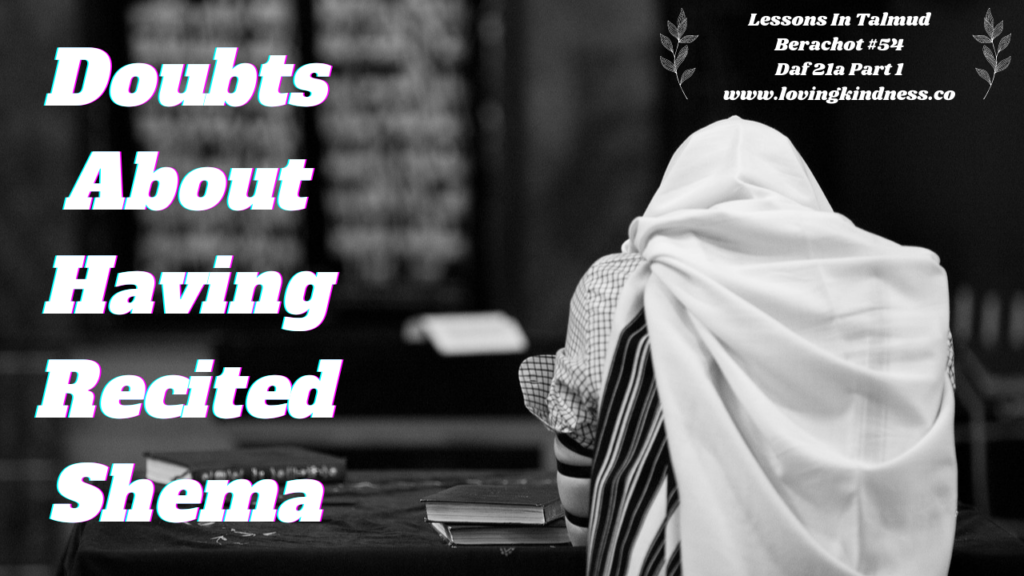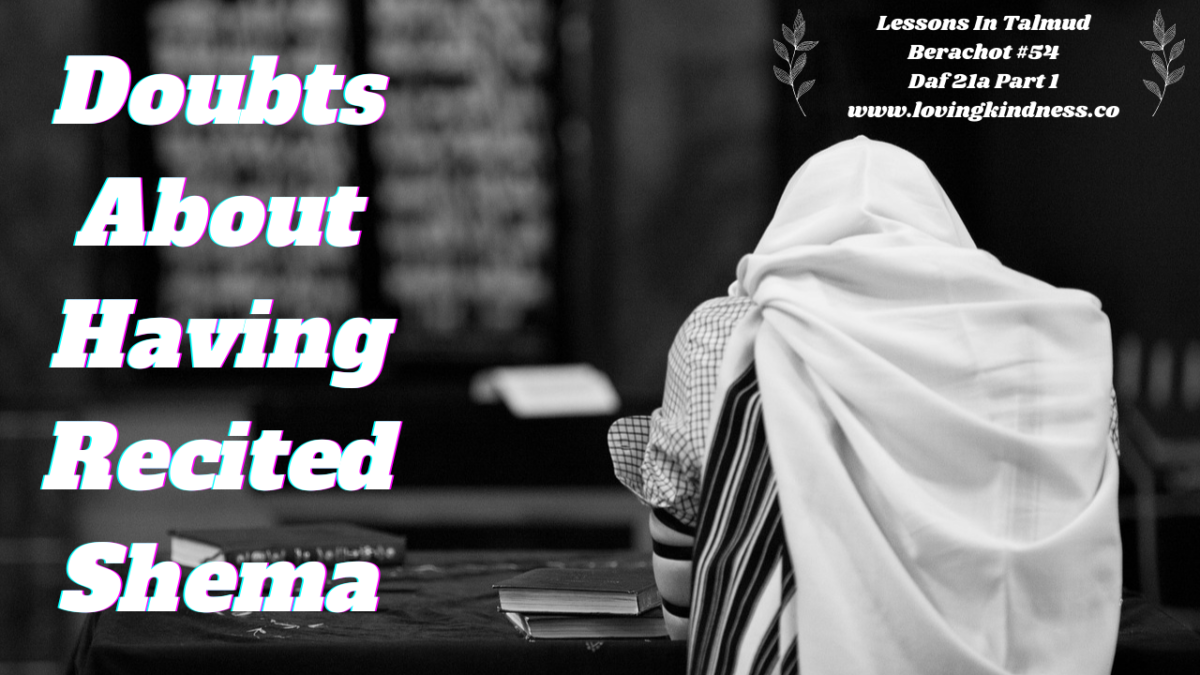
Our lessons in Tractate Brachot continue. On Daf 21a we continue the discussion of the Mishnah that related to the permissibility and prohibition of reciting certain things due to Ezra’s decree concerning a man who has had a seminal emission.
The Gemara begins with the question related to the recital of Shema as opposed to Tefillah (the Amidah prayer) citing that if one were already engaged in prayer when one realised the emission had occurred, one should shorten one’s prayer and not stop altogether. If he had not yet begun his prayer, he should not start! But with regards to reciting the Shema, things are different. Prayer does not include the acceptance of the kingdom of heaven. The Gemara takes it one step further citing that ultimately prayer is a Rabbinical requirement, whereas the Shema and Birkat HaMazon are Torah obligations.
The Gemara asks how we know that blessing after one has eaten a bread meal is a Torah obligation and discusses this. It also discusses the obligation of reciting the blessing over Torah (before we read the Torah). It then makes a comparison between the blessings over the Torah and the blessings that we recite after having eaten.
The Gemara discusses the issue of what one should do if one were in doubt about having reciting the Shema. Should one repeat it or not? What about the prayer of “Emet Ve’Yatziv”? Would one be obligated to recite this prayer if one were in doubt as to having reciting it already? What is the difference between the Shema and Emet VeYatziv?
What is the law regarding a person who started praying, only to realise he had already prayed his prayer before? What should he do? Should he stop or should he continue/ The Gemara enters into a lively discussion on the subject.
We make a start to Daf 21 Amud a.


